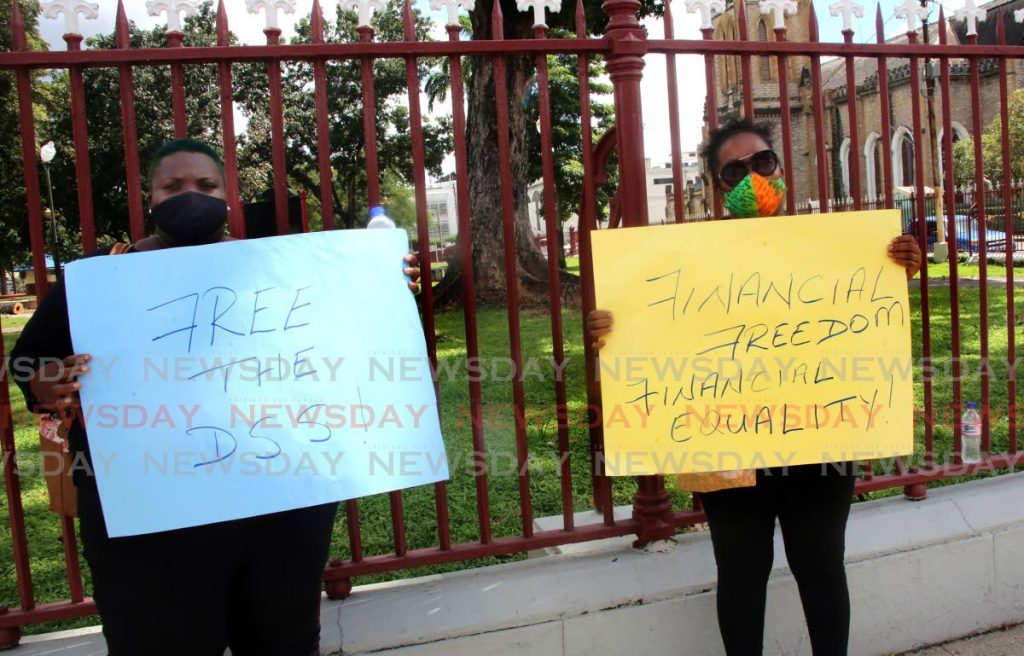Lessons of DSS

The protests by investors in the Drugs Sou Sou (DSS) financial scheme continued with vigour last week.
On November 6, a group of investors protested outside the Red House and the next day, another group warned the Prime Minister, outside his residence, that there would be a political price to pay for the seizure of $6.4 million in DSS money.
DSS investors said they were prepared to lose their money if the scheme crashed, but not through seizure by the authorities. It was, they declared, worth the risk.
DSS founder Kerron Clarke is said to be on 83 days’ leave from the Defence Force, granted at his request. He continues to solicit funds for his legal fees to deal with these events.
The Minister of National Security is approaching the operations of DSS as if they were criminal, but has not said what crime may have been committed or that the police are investigating.
DSS participants insist their investments are in a sou-sou, a loan co-operative that pays out the total monthly sum collected by a group to each in turn.
There is no profit in a traditional sou-sou. The money that goes into it is the money that comes out. There has been no explanation of where the money will come from to finance the substantial "returns" promised by Mr Clarke.
The social desperation triggered by the economic slowdown caused by covid19 is pervasive, and these schemes offer hope to desperate citizens.
Several pyramid schemes have appeared, financial systems in which Peter is used to pay Paul's investment and profits. These schemes pay off for a few Pauls – then collapse when there aren't any more Peters available to "invest."
Until a claim of fraud or some other legal offence is lodged, the National Security Minister appears to be urging investigation into poor financial literacy and a lack of common sense.
So it's unsurprising that "investors" perceive attempts to probe these schemes as arising from prejudice against poor people, instead of an attempt to stave off an inevitable tragedy.
There's clearly a need to improve the financial literacy of the general public, particularly in the difficult circumstances of covid19.
There also needs to be more clarity about the laws governing non-bank financial investment ventures.
The ultimate solution isn't in chasing after pyramid schemes but in bringing financial savvy to the management of the traditional sou-sou.
In addition, some African banks have partnered with well-established esusu operations to formalise the operation of these lending circles. One Lagos entrepreneur is expanding and modernising the system with an app called Esusu, which emphasises transparency in contributions and payouts.
Responding with clarity about the law and expanding financial-literacy education should be part of the formal state response to salting the soil in which these schemes take root.


Comments
"Lessons of DSS"